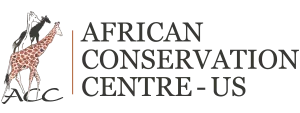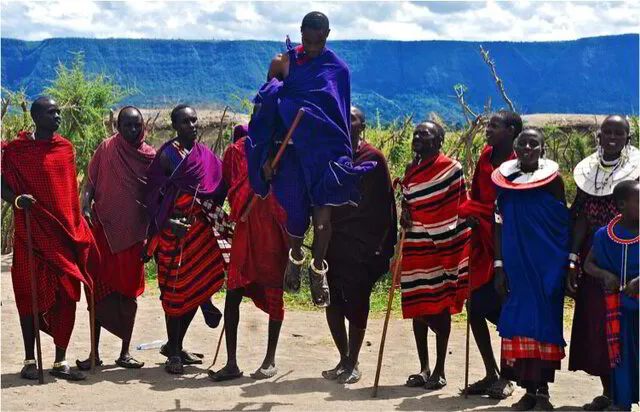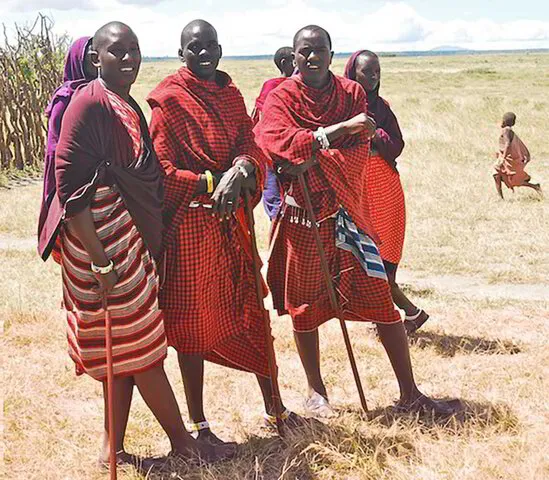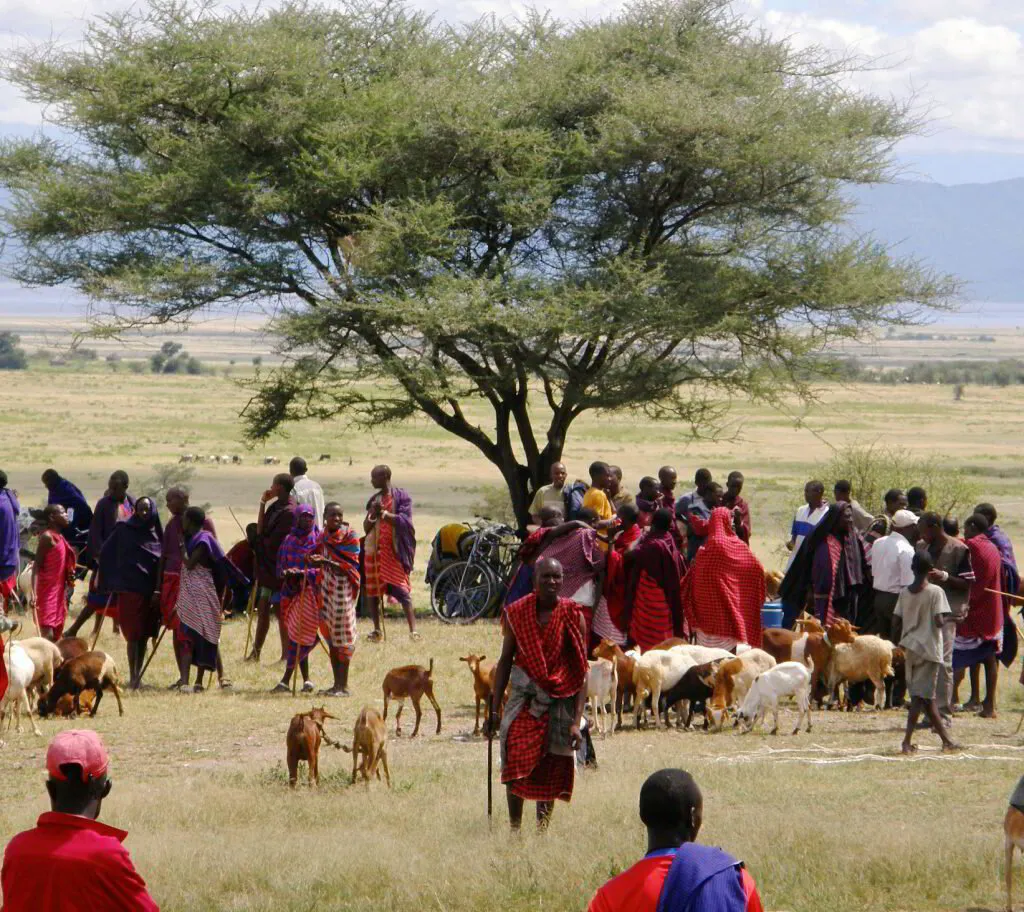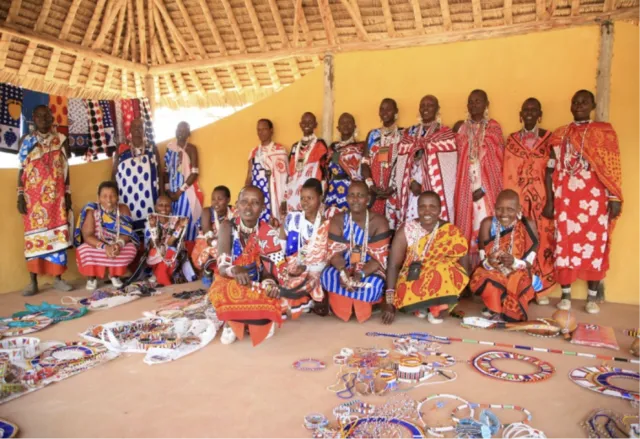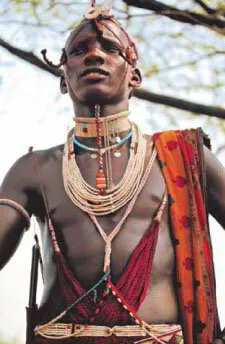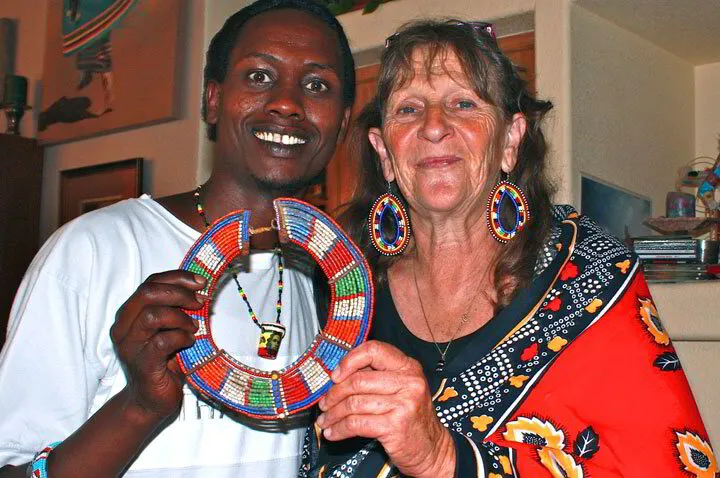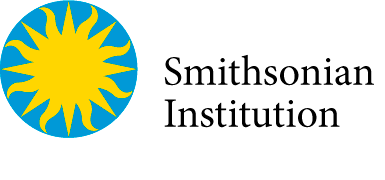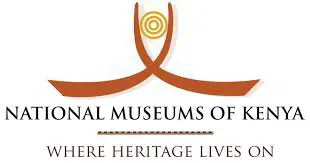Photo © Local Ocean Trust
EXPLORE
Maasai Cultural Heritage
Survival of Culture & Wildlife
The Maasai have become the iconic face of Africa in recent decades, thanks to popular culture and mass tourism. Their image is displayed in brochures, magazines, and on billboards around the world. Despite their fame, the Maasai are fast losing their material culture and profound knowledge of livestock, environment and wildlife. The traditional rites of passage that pass Maasai cultural values and knowledge from one generation to another are waning. The passing of traditional elders, a lack of documentation and rapid modernization are obliterating Maasai traditions and knowledge. Spurred by a burgeoning tourist market, non-Maasai vendors are pirating and eroding traditional crafts at the expense of Maasai artisans and communities.
The survival of Kenya’s wildlife and the tourism that goes along with it are also inextricably tied to Maasai culture. The Maasai have coexisted with wildlife for centuries. Their traditional way of moving with their livestock prevents land degradation and permanent settlements providing a landscape in which both people and wildlife can thrive.
With their culture at a crossroads and their traditions disappearing, there is an urgent need to support the Maasai in their efforts to preserve their heritage. The South Rift Association of Land Owners (SORALO a Maasai land owner group) and the African Conservation Centre in partnership with the African Conservation Fund (now ACC-US), the Smithsonian Institution and the National Museums of Kenya launched the Maasai Heritage Program in 2012 to meet this need.
The Heritage Program mobilizes communities in Kenya to revive and celebrate their common heritage through annual cultural festivals, a cultural heritage centre and museum, cultural exchanges and the development of cultural tourism that brings benefits to the genuine custodians of their culture.
Cultural Festivals
Annual festivals brings together vignettes of Maasai heritage and encourage communities to share, restore and celebrate their culture and to exhibit and perpetuate traditional practices, skills and knowledge for the benefit of Maasai communities. The festivals exhibit aspects of Maasai culture including ethnography, history, environmental knowledge and skills and traditional life ways.
Interactive Cultural Museum
An interactive cultural centre and museum is in the process of being developed at Olorgesailie in the South Rift of Kenya to showcase Maasai culture all year round. The centre will serve as a community gathering place and a repository for all things Maasai.
Our collection of traditional Maasai artifacts has been slowly growing. The materials have been sourced both locally and internationally through our repatriation project. Some of the repatriated materials include a beautiful old Maasai necklace donated to us by the Benali family of Arizona and a Maasai war shield that is over 100 years old from George Schaller.
Cultural Exchanges
One way of highlighting the problems of cultural erosion and the benefits of common identity is to draw on the experience of other indigenous groups of people. In 2012, the Maasai heritage planning team met with Navajo artists, pastoralists, environmentalists, educators and spiritual leaders in Arizona to learn how they are preserving their culture and traditions. The team is incorporating many of the Navajo best practices into the Maasai Heritage Program. The Maasai would like to continue this exchange by hosting Navajo guests at their cultural festival in the future.
Our Progress
Inaugural Cultural Heritage Festival — The first Maasai Cultural Heritage Festival was held on November 7-9, 2013 at the Olorgesailie prehistoric site in the South Rift of Kenya.
Partnerships — A long term partnership with the Smithsonian Institute is being established to help develop many aspects of our program including training and documentation, the Maasai Heritage Centre, the Maasai Heritage Annual Festival, and policy related matters.
Establishment of a Council of Trustees — The Heritage program has started discussions to establish a Council of trustees made of elderly statesmen from the Maasai community with high standing in the society to give the project a high standing.
